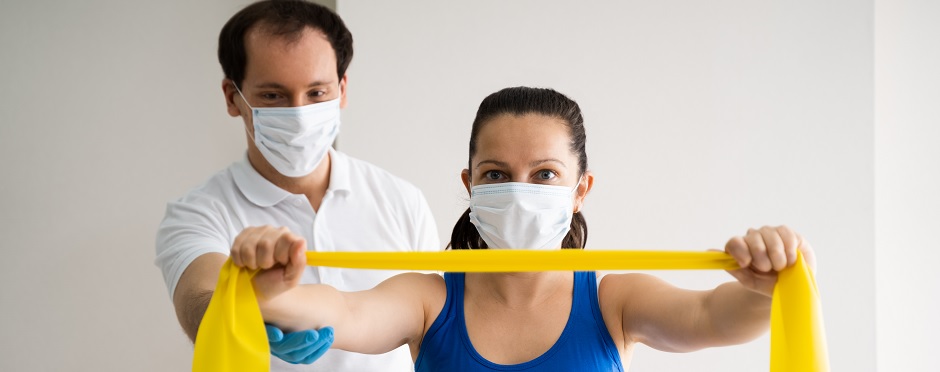
4 Ways You Can Be a Successful Home Therapy Patient
1 CommentAs we continue to navigate the current pandemic, patients are seeking alternative methods of healthcare in order to limit their exposure to COVID-19. One such method that Athletico has fully embraced is a service called Home Therapy. This allows patients to be safely treated in home by a skilled Physical or Occupational Therapist. Read on to learn if this service is for you and how you can be successful.
1. Knowing you’re a good candidate for Home Therapy and how to get started
Whether you have been suffering from a chronic injury for many years or recently experienced an injury, we can help! Common patients we see in the home are those that have balance concerns and trouble walking. This oftentimes results in a patient fearful of leaving their house and not wanting to seek care in a clinic setting. We can address any and all of these concerns with Home Therapy. We are proud to accept most major insurance plans and can see most patients without a referral from a doctor.* For more information or to schedule an appointment, visit: www.athletico.com/HomeTherapy.
2. Get creative with things around your home
This is the time for you and your therapist to get creative with common, everyday objects you already have in your home. For example, one can use a belt or a dog leash as a stretching strap or put rice in an old sock in order to heat up as a hot pack. The options are endless! In addition, patients oftentimes have complaints of pain with specific movements, such as getting in and out of a car. Home Therapy allows us to be hands-on and observe you actually getting in and out of your car and provide helpful education to improve your symptoms while doing that specific activity.
3. Invest in some new equipment for your home
Oftentimes, the therapist can mostly use things around your home to accomplish your specific needs and goals, but sometimes it would be helpful to purchase some basic equipment, such as resistance bands, dumbbells, stretching straps, or hot and cold packs in order to enhance your home therapy experience. This not only can be used during your current sessions with the therapist, but also for when you are discharged from Home Therapy and are independent with a home exercise program. This will allow you to continue to progress independently in order to continue towards your health goals! If you’re interested in purchasing home exercise equipment, click here.
4. Be compliant with your exercises
At the initial visit, your therapist will create a plan of care that is unique to your symptoms and goals. One part of establishing that plan of care is creating a home exercise program that you as a patient will be responsible to complete in between home therapy sessions. It is vital that you are compliant with your home exercise program in between sessions in order to continue to progress your rehabilitation potential. As you progress along week by week, your therapist will continue to update your exercise program to match your skill set.
Home Therapy is great alternative to clinic-based therapy and can even help to bridge the gap between when you get home from the hospital to when you are able to start physical therapy in a clinic. To schedule a home therapy appointment, visit www.athletico.com/HomeTherapy and our Virtual Agent Margie® will get you started. You can also give us a call at 877-ATLETICO (284-5384) and press 3 for Home Therapy or email us at HomeTherapy@athletico.com
*Direct access rules vary by state
The Athletico blog is an educational resource written by Athletico employees. Athletico bloggers are licensed professionals who abide by the code of ethics outlined by their respective professional associations. The content published in blog posts represents the opinion of the individual author based on their expertise and experience. The content provided in this blog is for informational purposes only, does not constitute medical advice and should not be relied on for making personal health decisions.

1 Comment
Colin Crawford
Great blog! Thanks for posting.